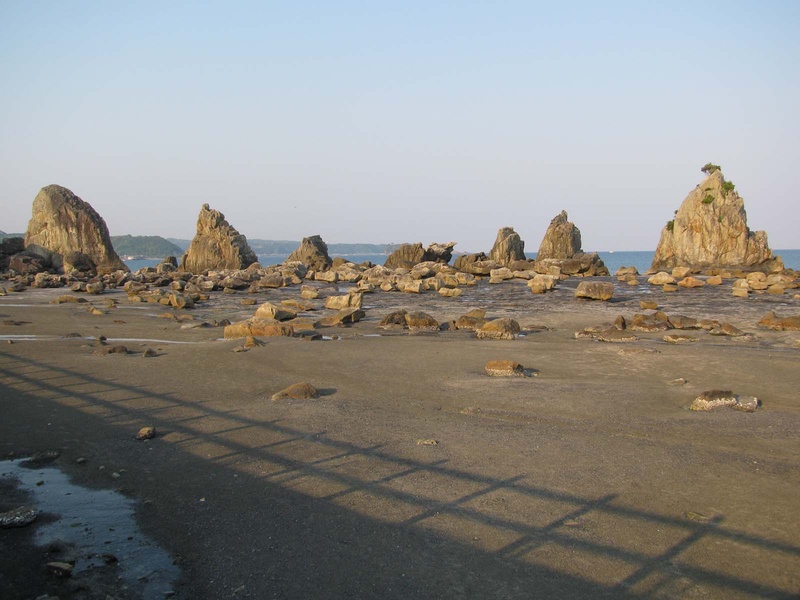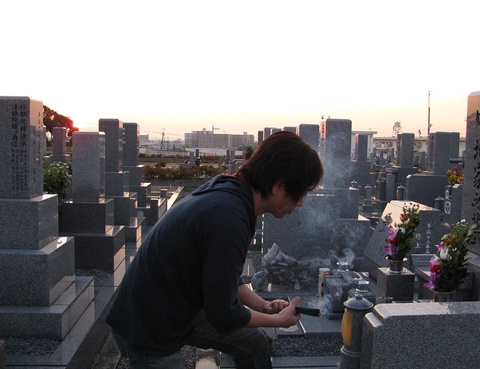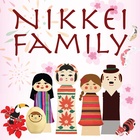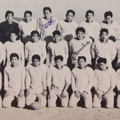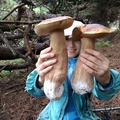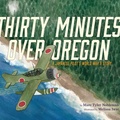Until I went to Japan, I’d talked to my uncle only twice: once when my Japanese grandmother died, and again when my grandfather did.
Only two people regularly called the house and spoke in Japanese, and I knew both their voices well: the elderly one was my great-aunt; the younger one with a British accent was Mayumi, an old friend of my mom’s, who Anglicized her name herself, as “Muh-you-me.” So when the “moshi-moshi”—that special phone version of “hello”—came across the line in a deep voice that sounded thoroughly Japanese without a hint of California breeziness, I knew it had to be my long-lost uncle. And the second time it happened, a year later, the pattern had already been established: I knew my mom’s dad, my ojiisan, was dead.
My mom stopped talking to her younger brother for reasons I couldn’t understand as a child. Presumably, they were the same reasons why she fell out of touch with old friends in all the places we left behind as we moved around the country—the Unitarian ladies in Peoria, the Japanese corporate businessmen’s wives in San Jose. Guilt was part of it. At twenty-two she left Osaka for Los Angeles for what was supposed to be a temporary stay and never went back. In her mind, she abandoned her parents, and left her brother to deal with taking care of them through old age and death. More than all of that, though, maybe it came down to force of habit that ossified over time, the difficulty of picking up a phone after years of silence. All of this was lost on me then.
“He’ll be happy to hear from you!” I urged whenever my mom brought up her brother, which she did always with a sigh. “Just call him!” I had pen pals after all, and they never cared if I went a few months before responding to their letters.
“Sō ne!” my mom would respond resolutely. “I should!”
In my junior year of college, I moved to Kyoto for the year. Kyoto and Osaka prefectures border each other, both in the Kansai region of Japan. And I lived in a town called Uji, at the southern tip of Kyoto Prefecture, already a third of the way to Osaka. I couldn’t spend a year there without seeing my uncle. My mom must have finally reached out to him, because less than a month into my homestay, he called me.
I recognized that voice over the phone instantly, and this time I knew enough Japanese to say more than “moshi-moshi.” We talked about Uji and the length of the train ride from there to his family’s apartment, about the limited life details we could convey to each other with my nervous Japanese and his nonexistent English. He lived in Kishiwada, an Osaka town known for its old stone castle, less than four train stops from Izumiōtsu, where he and my mom grew up. He had a new family, a wife and two toddler daughters, the oldest sixteen years younger than his daughter from his first marriage, and he worked as a night truck driver, making deliveries across the city before stores opened in the morning. His voice had this tone that I could not just hear but see and almost grasp, this deep-voiced Japanese man driving trucks in a country driven by white-collar male success. He sounded gentle and infinitely familiar, like the golden brown of my mom’s eyes, the warm, deeply textural color of an old-growth tree.
During my year in Kyoto, I stayed with my uncle’s family a few times. It didn’t take long for my cousins to warm up to me, or for me to fall in love with them. To each other, we were envoys from totally different worlds, but with the same grandparents, the same wavy tendency to our hair. That year, I thought I could bring my family back together. In Osaka, grilling takoyaki together in my uncle’s kitchen, that felt likely, even inevitable.
For my first months back home in the U.S., we kept in touch pretty regularly. My uncle mailed me albums of photos, both old and new. I found little presents for my cousins almost everywhere I went. But the time difference between Japan and California was hard to overcome, and so was my lack of confidence in my Japanese skills, the longer I went without using them. A year went by without contact, then two, then three.
The more time passed, the guiltier I felt and the harder it was for me to pick up a pen. I began to see how my mom must have fallen out of touch with her family decades before. Those few years saw me through college graduation and my first job, a big breakup and the start of a new relationship. But to my cousins, they were even more crucial—the difference between three and six, five and eight. I knew that if I waited longer, they’d forget me, or resent me when I tried to pop back into their lives. As the older cousin by 15 years, as the one who had crossed the ocean, I had to take the initiative.
I’ve started by sending birthday cards, even when they’re late. When I get emails, I try to respond right away. It’s not easy—I continue to feel guilty about my years of silence and my diminishing Japanese—but I’m determined. When my relatives hear my voice over the phone, I want it to sound like good news.
* This article was originally published on HelloGiggles on August 16, 2015.
© 2015 Mia Nakaji Monnier


